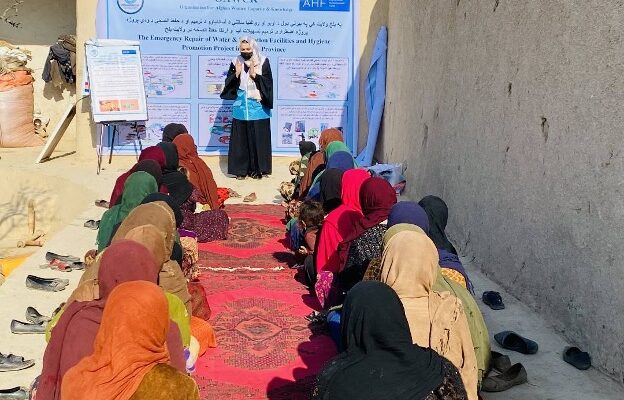Combining WASH and GBV prevention
Afghanistan| 2023 | CBPF
Afghanistan, Balkh province. Chemtal district is one of the most remote districts in the country. People depend on their livestock and their crops, but many of the most rural villages lack clean water and sanitation.
Additionally, severe climate change effects have precipitated a widespread water crisis across the country, generating new food, health and nutrition needs. Rising temperatures are rapidly changing rainfall patterns across the country, further diminishing people’s access to safe water.
Despite a significant reduction in active hostilities, Afghanistan remains a protection crisis with high levels of protracted displacement; mines and explosive ordnance; restrictions on freedom of movement; and increased risk of gender-based violence (GBV).
In rural parts of Balkh, access to safe water has long been a challenge. Chatralyan village is one of the poorest here. People rely on water from local lakes and smaller ponds, which are sometimes contaminated, and they have to travel to the lake then carry back the water by hand. By day, men and boys do the job, but after dark, the dangerous task falls to women.
As Najia, a local resident, explained, “Every year many of our kids fall sick and even die because of the water. Our animals are dying too. And we women also face harassment when we go to get water from the pond.”
With funding from the Afghanistan Humanitarian Fund, Afghan NGO Organization for Afghan Women Capacity and Knowledge (OAWCK) repaired a well near Naija’s village, also serving other villages in the remote district. “Every single person here will pray for you,” she said, in thanks for these improvements.
The NGO also conducted GBV awareness sessions for men and women. It was important to start addressing the harassment Naija describes. “Boys and men are committing such violence,” says Fatima, another resident. “I have witnessed such crimes. So I want to share information with my family about why this is harmful.”
Adapted from an original story by Organization for Afghan Women Capacity and Knowledge Afghanistan
More information about the Afghanistan Humanitarian Fund
